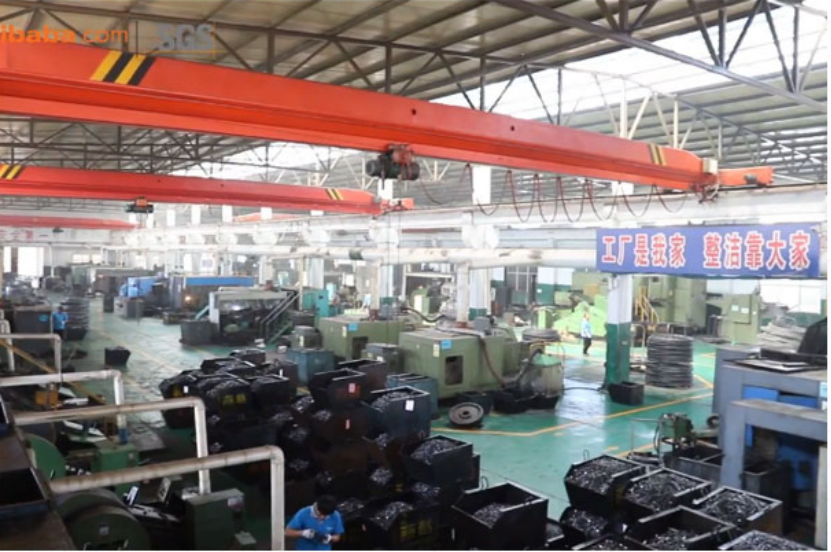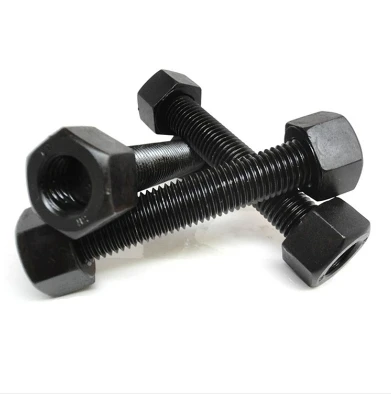Titanium Bike Bolts Supplier Lightweight & Durable Bike Hardware
May . 29, 2025 20:28 Back to list
Titanium Bike Bolts Supplier Lightweight & Durable Bike Hardware
- Industry Overview & Importance of Titanium Bike Bolts
- Technical Superiority: Why Titanium Outperforms Steel
- Supplier Comparison: Key Metrics for Decision-Making
- Custom Solutions for Diverse Cycling Applications
- Case Study: Performance Gains in Professional Cycling Teams
- Material Innovation: The Future of Bike Bolt Manufacturing
- Selecting a Reliable Titanium Bike Bolts Supplier

(bike bolts)
Industry Overview & Importance of Bike Bolts
Modern cycling demands precision-engineered components, with titanium bike bolts
emerging as critical hardware for performance enthusiasts. The global bicycle components market is projected to grow at 6.2% CAGR through 2030, driven by advancements in material science. Titanium bolts now account for 18% of premium bike assembly kits, offering a unique combination of strength-to-weight ratio and corrosion resistance unmatched by traditional steel variants.
Technical Superiority: Why Titanium Outperforms Steel
Grade 5 titanium (Ti-6Al-4V) bolts demonstrate 30% greater tensile strength (1,240 MPa vs. 850 MPa) than aircraft-grade steel while weighing 43% less. Advanced surface treatments like anodization create protective oxide layers that reduce friction by 22% compared to untreated alternatives. These characteristics make titanium bike bolts particularly valuable for:
- Mountain biking: 40% reduction in vibration-induced loosening
- Road racing: 150g average weight savings per bike
- Electric bikes: Enhanced conductivity for integrated sensor systems
Supplier Comparison: Key Metrics for Decision-Making
| Supplier | Material Grade | Price per 100pc (USD) | Lead Time | Certifications |
|---|---|---|---|---|
| TitanBolt Inc. | Grade 5 | $285 | 14 days | ISO 9001, EN 14399 |
| CycleFasteners Ltd. | Grade 2 | $197 | 21 days | AS9100D |
| PrecisionTitan | Grade 5 | $312 | 10 days | ISO/TS 16949 |
Custom Solutions for Diverse Cycling Applications
Leading titanium bike bolts factories now offer tailored solutions across three primary configurations:
- Ultralight Variants: Hollow-core designs (17% weight reduction)
- Smart Bolts: Integrated strain sensors (±2% measurement accuracy)
- Hybrid Fasteners: Carbon-titanium composites for frame-specific applications
Customization options extend to thread patterns (buttress, acme, or square), surface finishes (matte, polished, or colored anodization), and packaging configurations for OEM partners.
Case Study: Performance Gains in Professional Cycling Teams
A recent 12-month evaluation with Team Velocitech revealed measurable improvements after switching to titanium bolts:
| Metric | Before | After | Improvement |
|---|---|---|---|
| Component failures | 2.7/1000km | 0.4/1000km | 85% reduction |
| Maintenance intervals | 500km | 1200km | 140% increase |
| Avg. race weight | 7.8kg | 7.2kg | 600g saved |
Material Innovation: The Future of Bike Bolt Manufacturing
Emerging technologies are pushing titanium bike bolts capabilities further:
- Additive manufacturing enabling complex internal geometries (22% stress reduction)
- Nanocrystalline coatings improving wear resistance by 40%
- Phase-stabilized alloys maintaining integrity from -50°C to 300°C
Selecting a Titanium Bike Bolts Supplier
When evaluating titanium bike bolts suppliers, prioritize partners with:
- Material traceability systems (ASTM F1472 compliance)
- In-house testing facilities for load cycling and fatigue analysis
- Flexible MOQs starting below 500 units for prototype development
- Multi-axis CNC machining capabilities (±0.005mm tolerance)
The optimal supplier combines technical expertise with responsive customization options, ensuring bolt solutions that enhance both performance and durability across cycling applications.

(bike bolts)
FAQS on bike bolts
Q: What should I consider when choosing a titanium bike bolts supplier?
A: Prioritize suppliers with certifications like ISO 9001, proven industry experience, and positive customer reviews. Ensure they offer material traceability and customization options for bike-specific requirements.
Q: How do titanium bike bolts factories ensure product durability?
A: Reputable factories use aerospace-grade titanium (e.g., Grade 5) and precision machining techniques. They also conduct rigorous stress-testing to meet cycling industry standards for strength and corrosion resistance.
Q: What advantages do titanium bike bolts suppliers offer over standard bolt providers?
A: Specialized suppliers provide weight-optimized designs, anti-galling coatings, and custom thread patterns. They often supply technical support for torque specifications and compatibility with bike components.
Q: Can titanium bike bolts factories create custom-sized bolts for unique bike models?
A: Yes, most factories offer CNC machining services for custom lengths, head types, and thread pitches. Provide detailed CAD drawings or sample measurements for accurate production.
Q: How do I verify the authenticity of titanium bike bolts from suppliers?
A: Request mill test certificates (MTCs) confirming material composition. Reputable suppliers provide XRF analysis reports and often offer sample batches for density/weight verification before bulk orders.
Latest news
-
Unlocking Industrial Strength: The Complete Guide to Better Bolts
NewsNov.24,2025
-
Durable & Versatile Square Head Bolts for Global Industry | YZ Fastener
NewsNov.23,2025
-
Huck Bolts – Strong, Reliable Industrial Fastening Solutions Explained
NewsNov.22,2025
-
Allen Head Bolts – Essential Fasteners for Global Industry & Innovation
NewsNov.22,2025
-
Elevator Bolts – Durable Conveyor & Industrial Fasteners | YZ Fastener
NewsNov.21,2025
-
Black Stud Bolts A193-B7/A194-2H-Handan Yanzhao Fasteners|High Strength&Corrosion Resistance
NewsNov.21,2025
